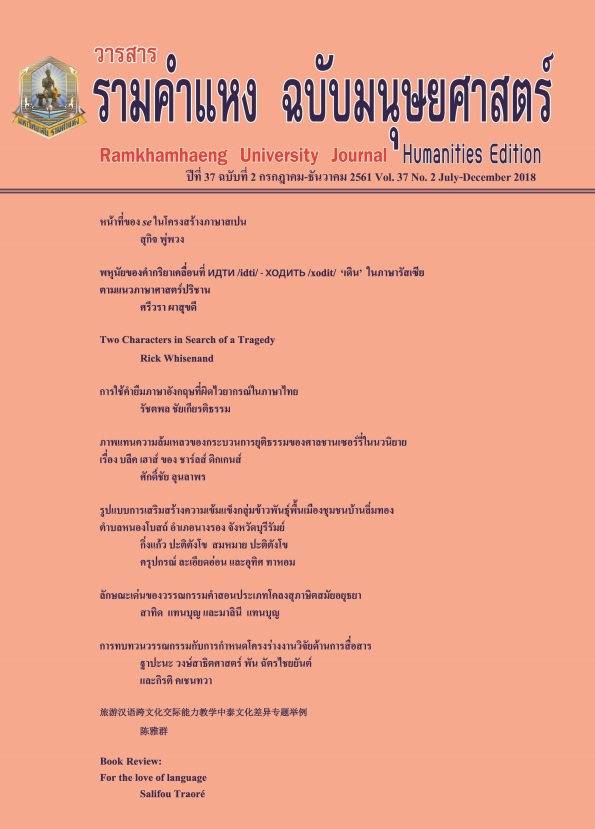Illustration of the Thai-Chinese Cultural Differences on Cross-Cultural Communication in Tourism Chinese Course
Main Article Content
บทคัดย่อ
Abstract
Since the 21st century, due to the rapid development of China's economy and its comprehensive opening to the outside world, outbound tourism has become an important part of it. Therefore, more and more Chinese people come to Thailand to travel, which has led many Thai people to participate in Chinese learning. At the same time, more and more people realize that to learn Chinese in a good way, they must cultivate cross-cultural communication skills.
Cultural differences arise because people have different cultural backgrounds, and cultural conflicts are a common phenomenon in intercultural communication. Intercultural communication is a comprehensive ability that includes knowledge, skills, attitudes, and cultural awareness. In the process of intercultural communication, people realize the importance of cultural differences. In order to understand the similarities and differences between Thailand and China in tourism, we have selected representative cultural differences, such as the differences in etiquette norms and communicative language differences. The teaching of tourism Chinese strengthens the teaching of intercultural communication ability, which can help Thai tourism practitioners to avoid cultural conflicts and better communicate and cooperate. However, so far, the cultivation of intercultural communication ability in Chinese teaching in Thailand has not paid much attention to it, and even such related materials are very scarce. Therefore, this paper mainly discusses 1)cross-cultural Chinese communicative teaching and textbook writing in the context of Thai culture, 2)compares the similarities and differences between Chinese and Thai language, 3)compares the differences between cultures and values of the two countries, and 4)compares the behaviors and differences in communication methods content.
Article Details

อนุญาตภายใต้เงื่อนไข Creative Commons Attribution-NonCommercial-NoDerivatives 4.0 International License.
ประกาศลิขสิทธิ์จะปรากฏในเกี่ยวกับวารสาร ควรอธิบายสำหรับผู้อ่านและผู้เขียนว่าเจ้าของลิขสิทธิ์เป็นผู้เขียนวารสารหรือบุคคลที่สาม ควรรวมถึงข้อตกลงการอนุญาตเพิ่มเติม (เช่นใบอนุญาตครีเอทีฟคอมมอนส์) ที่ให้สิทธิ์แก่ผู้อ่าน (ดูตัวอย่าง) และควรให้วิธีการรักษาความปลอดภัยหากจำเป็นสำหรับการใช้เนื้อหาของวารสาร


